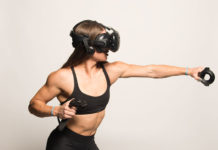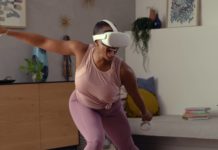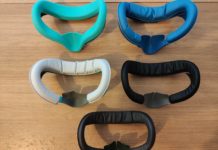Avatars are representations of real world humans that exist in a virtual environment. While it’s true and almost commonly expected that an avatar can be a fantasy character, what usually gets overlooked is that these same avatars can also be an accurate and detailed representation of the real versions of each user.
Though avatars are often thought of as characters used in video gaming, there is evidence that avatars can provide health advantages. Researchers have found that avatars are effective in persuading users when it comes to improving their health.
In one experiment, researchers explored the potential of using avatars as a complement to public health campaigns to increase the perception of personal relevance and to address the risk of sugary beverages. That’s right, researchers wanted to see if VR would make the masses pay better attention to health focused initiatives like those that have been telling Americans about sugar consumption in soda for years. And what they discovered was pretty incredible. They found that a virtual stranger and a virtual avatar modeled after the person engaging with the characters were effective for increasing risk perception, compared to giving a person a pamphlet of information.
Though both avatars were more effective than the pamphlet, avatars that were modeled after the user—doppelgangers, or mirror versions of themselves—were the most effective for increasing perceived personal relevance to a health message. What does that say about users, and people in general? We trust someone we feel comfortable with, and in this case, that someone is ourselves. What does that mean for VR? It’s entirely possible that when we’re in a virtual environment a healthy message is much more likely to resonate and become a reality in our daily lives.

Importance of Personal Relevance in Health
The research shows that personal relevance makes it easier to learn. When a person is able to relate to information and apply it to his or her own life, that information has a greater impact on the person’s life. Long-term, a lesson with personal relevance is going to have a bigger effect on someone than a general message that is not all that relatable. Bottomline: A pamphlet with statistics is impersonal and doesn’t connect, but a virtual experience with that same info being passed along by someone who looks and acts like you will.
Unfortunately, it can be tough for the medical community to demonstrate personal relevance as it relates to individual health problems. There is a tendency for people to assume risks don’t apply to them until they are faced with a health crisis. This is the age old problem of patients not realizing their health was at risk until they’re in terrible peril. Establishing personal relevance when communicating health risks is essential for helping people change their behavior long-term. When a person makes the connection between their health and the things they are doing, it’s easier to make improvements.
Researchers took advantage of the recent negative attention paid to sugar-laden beverages and how theses drinks contribute to obesity. Numerous heath promotions have been launched in an attempt to counteract the massive amount of sugar-sweetened beverages that are consumed on a daily basis. Some governments have even proposed banning large-sized soft drinks to reduce the health risk, but most people agree this would ultimately be ineffective.
How these Results are Already Having an Effect
At the end of the study, researchers concluded that VR health agents or avatars provide a novel way to address health concerns. Instead of reading a pamphlet or hearing health information, those exposed to the VR doppelgangers took more ownership of the message. If it’s easier to connect with an image that we identify with, what could possible be easier to identify with that an image of ourselves brought to life in a virtual environment? This will impact on us so much more than any other current method.
Some in the health industry are already taking advantage of the benefits of health avatars. Medical Avatar, a digital solutions company dedicated to corporate wellness and community health, has created the Healthy Selfie (see the stark contrast of what the tech can provide below), as well as several other apps and tools that promote self-care, advance medical education, and increased clinical trial patient retention.
![]()
The Healthy Selfie allows people to upload their photo and the program creates a detailed avatar modeled on the photo. The program then allows people to evaluate their stress levels, physical activity, sleep, diet, and smoking cessation.
![]()
Researchers believe science is just beginning to understand the positive effects virtual reality can have on the health community. Obviously more research is needed to determine just how far-reaching avatars and other VR tools can be when it comes to helping people lead healthier, happier lives, but this is a clear win for using VR to promote a healthy lifestyle. We’ll keep following this research and will report on it as it happens.





Comments are closed.